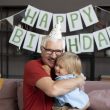When parents think of OCD, they might think of a child obsessively washing their hands or lining up their toys. Unfortunately, OCD can show up in so many other ways. These stereotyped versions of OCD prevent children from being properly diagnosed.
Did You Know
OCD is one of the most commonly missed mental health disorders, and yet according to the International OCD Foundation, 1 out of every 200 kids will suffer from obsessive compulsive disorder. That is roughly the same as those with juvenile diabetes. But unlike juvenile diabetes, it can take up to 17 years to receive an OCD diagnosis. That means most children with OCD will go through their childhood without proper treatment.
Unfortunately, the average mental health professional is not trained to assess or treat OCD. This gap has led to children being misdiagnosed with anxiety, ADHD and a variety of other mental health conditions. So as parents, it is important to understand the commonly missed signs of OCD so you can get proper support.
Let’s Get Down to Basics About OCD
OCD is not anxiety, even though people can have both disorders. OCD now has its own category in the DSM, The Diagnostic and Statistical Manual of Mental Disorders. The American Psychiatric Association reclassified OCD as a separate diagnosis because there are significant differences in brain chemistry and function for each of these disorders.
OCD comes in many themes that can morph over time, but they all have the same pattern. OCD starts with an intrusive thought or feeling (an obsession) that causes a strong urge to do or avoid something to get brief relief (a compulsion). The more a person does compulsions, the more obsessions they experience, creating a vicious cycle.
Unlike some mental health disorders, OCD can look vastly different in each person, which adds to the confusion.
Here are just a few common OCD themes:
- Moral OCD Themes:
Intrusive thoughts center around the fear they might have done, will do something that makes them a “bad” person.
- Hard OCD Themes:
Intrusive thoughts center around the fear that they might harm themselves or others and/or that someone else might harm them or others.
- Contamination OCD Themes:
Intrusive thoughts center around an identified contaminant spreading (which could be anything including germs, dust, glitter, bodily fluid etc).
- Symmetry OCD Themes:
Intrusive feelings that things need to be balanced or equal on both sides.
- Sensorimotor OCD Themes:
Intrusive feelings center around a hyper-fixation on a bodily function. This is often related to areas including breathing, blinking, urinating, swallowing or the heartbeat.
- Just Right OCD Themes:
Intrusive feelings center around things not being “just right.” This can include words, writing, reading, and daily activities such as wiping, brushing, or showering.
- Existential OCD Themes:
Intrusive thoughts center around the meaning of life, what is real and why we are here.
- Images and Songs:
Intrusive images and songs get stuck in the head and the person feels intense distress that they cannot get rid of them.
- Disgust OCD Themes:
Intrusive feelings that things evoke an overwhelming feeling of disgust. This can make things, people, and places off-limits.
That’s not even an exhaustive list, so you can see how complicated OCD can be! Themes can come and go, but how we approach OCD will remain the same.
So, now that you have a clearer understanding of the multitude of ways OCD can show up, let’s talk about some warning signs you might be dealing with OCD.
Here are four commonly missed signs of childhood OCD
1. Asking Repeated Reassurance Questions
It is common for kids to ask questions to get reassurance. That is why parents may not notice when it is actually an OCD compulsion. Reassurance questions that are possibly OCD look and feel a bit different.
- They repeatedly ask the same or similar reassurance questions.
- The question may appear non-sensical or obvious in nature.
- They may demand that you answer the question in a particular way.
- If you don’t answer they have intense panic.
Here are some examples of OCD-related reassurance questions:
-Is it bad that I may have thought my friend was ugly?
-Do you think it is okay to touch my food after I touched the sponge?
-Do you think I’ll get sick and throw up today?
2. Avoiding Objects, Places and Words
When people think of compulsions they might think of behaviors like washing, cleaning or organizing, but OCD compulsions are more complicated than that. A compulsion can be mental or physical. It can also be pure avoidance. People can avoid objects that they view as contaminated. They can avoid places that OCD tells them to avoid. They can even avoid certain words and require others to avoid them as well.
Kids will sometimes want to avoid things, but when it is OCD, these restrictions will look much more severe.
- They might require other people to touch the objects for them.
- They might get upset if that object touches them or their belongings.
- They might have an anxiety attack if they are brought to a location that triggers OCD.
- They will avoid speaking or writing specific word(s) and will panic if others say the word(s).
Here are some examples of OCD avoidance:
-The child refuses to touch door handles and won’t sit in certain spots on the couch.-The child refuses to go into certain rooms.
-The child cannot say the word throw up or any word with “throw” in it.
3. Confessing Past, Present and Future Behaviors
As parents, we want our kids to open up and tell us when they’ve done something wrong. But when kids have moral OCD themes, confessions are compulsions and not true conversations.
- They repeatedly ask the same or similar reassurance questions.
- The question may appear non-sensical or obvious in nature.
- They may demand that you answer the question in a particular way.
- If you don’t answer they have intense panic.
Here are some examples of OCD-related confessions:
-I had a thought that you were fat.
-I had a thought that I don’t love you.
-Today I think I might have cheated? (This usually follows with no concrete reason why they believe this).
4. The Need to Do and Redo Things Over and Over Again
Some OCD themes can make people feel like they need to do things over and over again until it feels just right. This can cause all sorts of struggles for kids and can impact their daily life as well as their academic performance. Kids can get stuck on just right OCD themes in various areas of their life.
- They need to wipe and re-wipe until they feel completely clean.
- They need to tie and untie their shoes, pants, or hair until it feels just right.
- They write and rewrite their words until it feels just right.
- The walk in and out of doorways until it feels just right.
Here are some examples of OCD-related just right compulsions:
-The child demands that you repeat your words until it feels just right to them.
-The child needs to re-read schoolwork over and over until it feels just right.
-The child re-writes the schoolwork over and over until it looks just right.
What if I Suspect My Child Has OCD?
If you suspect your child is exhibiting some red flags for OCD, it is helpful to get them assessed by a qualified OCD child therapist. Remember not all therapists are trained to assess and treat OCD, so be sure to find a qualified professional. You can find a directory of OCD therapists at www.IOCDF.org/find-help or go to NOCD at www.treatmyocd.com.
OCD Parenting Resources
- Online Courses to Help Kids with OCD
- Crushing OCD Workbook for Kids: 50 Fun Activities Using CBT and ERP
- OCD Podcast and YouTube channel
Natasha is a child anxiety & OCD therapist and has battled her own anxiety throughout her life. She is the author of Social Skills Activities for Kids, It’s Brave to Be Kind, Anxiety Sucks: A Teen Survival Guide, How to Parent Your Anxious Toddler and Crushing OCD Workbook for Kids.
She is the creator of ATParentingSurvival.com, the host of the highly ranked, AT Parenting Survival Podcast and creator of the Youtube channel, Ask the Child Therapist.
Her work has been featured in various places including Huffington Post, Scary Mommy, PsychCentral, The Child Mind Institute and The Mighty.











